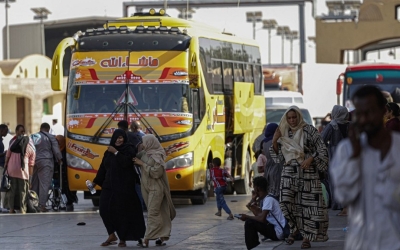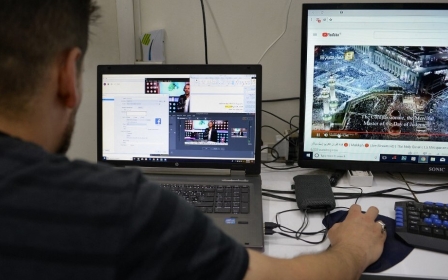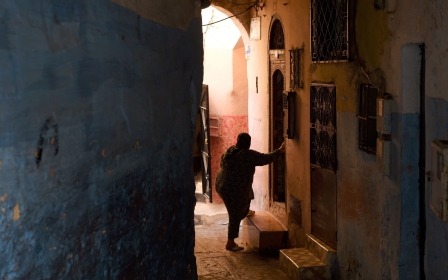Arabic press review: Tunisian journalist dies after saving two children from drowning

Tunisian journalist dies after rescuing children from drowning
A local radio station in Tunisia said one of its journalists died on Monday after saving two children from drowning.
Journalist Tawfiq Makhlouf died on the beach of the city of Hergla in the state of Sousse, after jumping into the ocean to save two children, according to Jawhara FM, a private local radio station in Tunisia.
A civil protection official said that Makhlouf collapsed due to severe exhaustion and fatigue after leaving the sea, and as a result he was exposed to severe internal bleeding, and attempts to treat him were unsuccessful.
New MEE newsletter: Jerusalem Dispatch
Sign up to get the latest insights and analysis on Israel-Palestine, alongside Turkey Unpacked and other MEE newsletters
"It is clear that the deceased is of a very rare type. He rushed with all his might to save a human life with a high human spirit. He saved two children from drowning," said a local official.
Eyewitnesses said the 50-year-old saved a seven-year-old girl who was swept away by heavy waves, and later helped her father save her brother, according to the radio.
According to the testimonies, the sea was very turbulent and was not suitable for swimming.
From the beginning of last July until mid-August, the Civil Protection in Tunisia counted the death of 73 people by drowning.
BBC journalists in Egypt go on strike
Workers at the BBC office in Cairo announced that they will be on strike for a period of 10 days, which can be extended, starting Monday, according to a report published by the London-based Al-Araby Al-Jadeed newspaper.
The workers are protesting against low salaries, a deterioration in their living conditions, and discriminatory behavior by the institution.
"We had to repeat the strike with the continued administrative intransigence and the policy of discrimination pursued by the institution against us," the BBC workers said.
They also affirmed that they were "open to dialogue," calling on the BBC management to "take serious steps for a constructive dialogue to solve the crisis and end discriminatory practices against the Cairo bureau."
"This strike is the third in less than three months, after a one-day strike in June and a three-day strike last July," the BBC staff in Cairo said in a statement.
""Our decision to go on a third strike comes as a result of the institution's intransigence in solving our problem, and its insistence on treating us with an unfair financial policy that clearly distinguishes between the Cairo office and the rest of the institution's offices in the Middle East."
Saudi Arabia diabetes up by 99 percent
A Saudi health expert revealed that the rate of diabetes in the kingdom increased by 99 percent in the past 10 years, according to the Saudi newspaper Sabq.
Health promotion and awareness expert Dr Abdul Rahman Yahya al-Qahtani warned that Saudi society suffers from severe obesity, leading to related health problems.
'This problem is the main risk factor for death and disability in Saudi Arabia, as three out of five adults in the kingdom are overweight or obese'
- Abdul Rahman Yahya al-Qahtani
"This problem is the main and first risk factor for death and disability in Saudi Arabia, as three out of five adults in the kingdom are overweight or obese, according to a recent report by the World Bank".
He pointed out that diabetes cases increased by 99 percent in one decade in Saudi Arabia, with 1.4 million cases recorded in 2009, compared to 2.7 million cases in 2019.
He explained that these diseases deplete health services, "and constitute a great economic burden on Saudi Arabia".
He pointed out that Saudi society also suffers from "a sharp decline in the intake of the recommended daily amount of vegetables and fruits by 93 percent of adults".
Saudi local estimates indicate that the cost of obesity treatment in Saudi Arabia amounts to about 19 billion riyals annually ($5.7bn), and that the percentage of people in the kingdom practising regular physical activity is less than 20 percent of the population.
*Arabic press review is a digest of news reports not independently verified as accurate by Middle East Eye.
Middle East Eye delivers independent and unrivalled coverage and analysis of the Middle East, North Africa and beyond. To learn more about republishing this content and the associated fees, please fill out this form. More about MEE can be found here.





